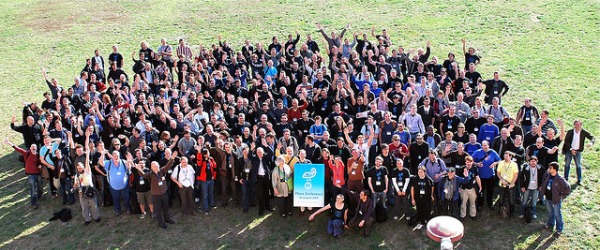Some of you may be graduating soon and you might be busy applying for your first biotech or life sciences job. Or if you’re a PhD student, maybe you’re thinking about a postdoc position. How well do you think you’ll perform at interview?
Interviews are difficult at any level, so here we’ll guide you through some of the likely interview questions and situations you might find yourself having to deal with in a life sciences interview.
As a veteran interviewee of more years than I care to mention, here are my 10 top tips for how to make a great impression at your life sciences interview.
1. First Impressions
The obvious one – first impressions count! You have no idea how true this is. Ask any psychologist. You need to smile and make sure you give a firm handshake (if handshakes are ever allowed again) without breaking anyone’s bones. Eye contact is vital, so keep your gaze just a few seconds longer than usual, without looking scary. Dress smartly (see point 6).
2. Questions and Answers
Let the interview committee lead the interview, but remember that you don’t have to wait until the end of the interview to ask questions. While the panel are telling you about the position and the lab or company, questions from you will emphasize your interest in the position.
The panel may start with the question “Tell us about yourself and your experience, and why you think you would be the best candidate for the job”. This is where it helps to have your elevator speech handy as a brief introduction to who you are and what you can do. Don’t just use the mini-speech you normally give at conferences; tailor it to the job.
Give examples of your technical and transferable skills and show how these will help you with aspects of the job. Are particular techniques needed to do the job? Are you applying for a biotech/pharmaceutical job working on a particular product? Do your homework and prepare stuff to recite when prompted – you’ll find the interview a much easier process if you do this.
3. Over to You
Have questions ready to ask. It’s really important that you ask relevant questions about the job, the lab/company, your prospects… Show the panel that you’ve gone the extra mile and taken the time to find out that bit more about the company or university – it will definitely go in your favor. Will you be able to develop your own research projects? How much responsibility will you have for applying for grants?
Sod’s Law dictates that the panel will answer your best question during the conversation, before you’ve had a chance to ask it, but try not to worry about this through the interview.
It’s automatic to experience a feeling of dread when you think that you’re not going to have any killer questions to ask at the end, but worrying about it only distracts you from the interview process so, if this happens, let it slide. Just remember to let the interview panel know that you were keen to ask a particular question, but they had already answered it earlier. It will also serve as a recap and you might be able to think of something else related to it on the spot.
If you’re a PhD student, speak to postdocs in your lab and ask them about their interviews; they might have some example questions for you to practice.
4. Life Sciences Interview Preparation
Before the interview (not the night before – do give this some thought) you should consider how you handle situations like interviews. A common question from an interviewer will be “What makes you nervous”? Have some idea of how you will answer this. They want to know how you handle stressful situations and an interview is a prime example.
How will you answer a question like “What are your salary expectations”? A difficult one if you don’t know whether you are over or under selling yourself. If you’re going for a job with a biotech or life sciences company, make sure you’ve done some research into starting salaries.
Figure out what your strengths and weaknesses are – you need to be able to say what you’re good at and what you’re not so good at. But do remember to add how you have overcome any weaknesses using examples, e.g. if you’re nervous speaking in front of groups, mention how you attended a course on PowerPoint presentations/public speaking and are now much better at it!
If you’ve become expert at a particular technique, tell the panel how you can teach this to others in the lab/company.
5. Your Reasons for Wanting the Job
Ask yourself why you want this job because you’ll likely be asked this on the day. If you’re switching from academia to industry or vice versa, make sure you can explain why. Only you know the answer and you need to make it a good one. Just needing a job isn’t a good enough reason for someone to hire you.
Ask yourself what you actually know about the lab/company. Are you interested in a long-term career or is this simply a stopgap for you? The panel might ask you where you see yourself in 6 months’ or 5 years’ time – how will you answer this? Is this the next step on the path to becoming an independent scientist, or are you leaving academia for a new challenge in industry? Make sure you can explain your motivations.
6. Dress Code
Make sure that you dress professionally. Despite how you usually dress in the lab, casual is not good in an interview and gives the wrong impression. For a professional career position, get it right and buy that killer suit. If your life sciences interview is taking place online, make sure you’re not wearing pajama bottoms in case you have to move suddenly!
7. Be Enthusiastic!
You’ve been invited for interview because the panel believe you can do the job. It’s just down to you on the day to show that you can do it better than anyone else they might be interviewing.
Even if you don’t tick all the boxes for the job criteria, I’ll bet you have something just as good or even better to offer. The interview panel don’t know this yet, so you have to tell them. Don’t be negative about a past (or present) employer, working conditions, etc., as this will give a really bad impression. Try to show that you are flexible and willing to take on responsibility.
8. Timing is Critical
Whatever happens, don’t be late! Arrive 10 minutes early – and if you’re too early then take a walk around the block. Just don’t leave it until 5 minutes before the interview is due to start, because the interview room might be some distance away from the reception area you have reported to. You don’t want to have to hurry up three flights of stairs and arrive out of breath, sweaty and stressed.
9. No Coffee Stains Please…
Sometimes, you might be required to take your references with you, so make sure you have these ready and in good condition in a folder. Don’t expect to make a great impression at your life sciences interview if you hand over evidence of your capabilities with coffee mug rings as your personal logo.
10. The Evening Before the Interview
I’m not going to say try to relax the evening before because you won’t. If you really want the job, you’ll be pretty nervous. That’s natural – and that’s the best advice anyone can give, to just be natural and be yourself. That’s the person they’re looking for. Good luck!
Let us know if you have any horror stories about life sciences interviews going badly or what you did to nail that postdoc or biotech job. We’d love to hear…
Originally published May 4, 2011. Reviewed and updated on December 16, 2020.




